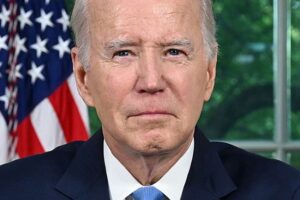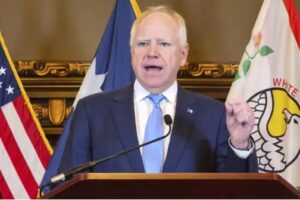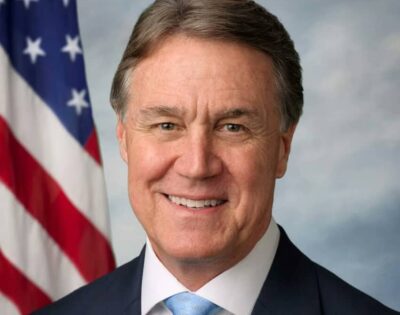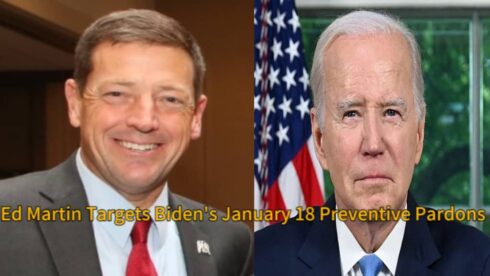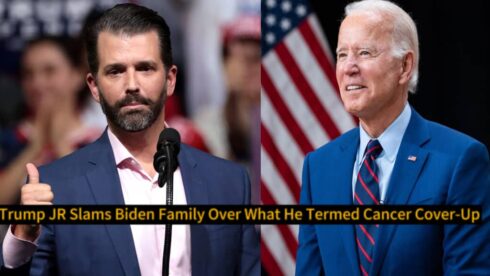President-elect Donald Trump has announced former Georgia Senator David Perdue as his pick for the next U.S. ambassador to China. The move signals a strategic shift in how the United States plans to engage with one of its most significant global rivals. Known for his hawkish stance on China, Perdue has been a vocal advocate for strengthening U.S. military capabilities to counter Beijing’s growing influence.
In a statement accompanying the announcement, Trump emphasized the critical role David Perdue will play in maintaining peace and fostering a “productive working relationship” with China. The nomination comes amidst heightened tensions between the two nations, with concerns about trade imbalances and military posturing dominating the bilateral agenda.
A Hawkish Approach to U.S.-China Relations
David Perdue has long been a prominent voice advocating for a tougher stance on China. While in Congress, he was labeled “anti-China” by a Chinese think tank due to his calls for a stronger U.S. Navy and criticism of Beijing’s expanding military power. His appointment aligns with Trump’s broader strategy of surrounding himself with advisors and officials who take a hardline approach toward China.
The nomination of Perdue follows Trump’s decision to bring back Peter Navarro as a trade and manufacturing advisor. Navarro, known for his advocacy of high tariffs and a confrontational stance on Beijing, has fueled speculation that Trump’s administration may push the U.S. closer to a potential trade war. Other key foreign policy appointments, including Senator Marco Rubio as Secretary of State and Pete Hegseth as Defense Secretary, further underscore the administration’s focus on countering Chinese influence.
Escalating Trade Tensions with Beijing
A persistent trade imbalance between the United States and China remains a central issue in bilateral relations. In 2023, the U.S. imported over $420 billion worth of goods from China, while exporting less than $150 billion. Trump has vowed to address this disparity by imposing steep tariffs on imports from China, Canada, and Mexico in his first days back in office.
The Chinese embassy in the U.S. has warned against the dangers of escalating tensions, cautioning that both nations would suffer severe economic consequences if a trade war were to unfold. “China-U.S. economic and trade cooperation is mutually beneficial in nature,” said embassy spokesperson Liu Pengyu in a recent post on X. “No one will win a trade war or a tariff war.”
Despite these warnings, Trump appears undeterred, signaling that his administration is prepared to adopt an aggressive approach to rebalancing trade. David Perdue’s appointment as ambassador will likely amplify these efforts, given his history of aligning with Trump’s economic agenda.
David Perdue’s Journey to Beijing
If confirmed by the Senate, David Perdue will succeed Nicholas Burns as the U.S. ambassador to China. His path to this critical diplomatic post has been marked by both political and corporate experience. After serving as a U.S. Senator from Georgia, Perdue unsuccessfully ran for governor in 2022, where he echoed Trump’s baseless claims of electoral fraud during the 2020 presidential election.
Before entering politics, Perdue built a successful career in the corporate world, holding executive positions at major companies like Dollar General and Reebok. This diverse background is expected to influence his approach to navigating the complex economic and political dynamics between the U.S. and China.
China, for its part, has expressed a cautious willingness to engage with the incoming administration. Following Perdue’s nomination, Chinese embassy spokesperson Liu reiterated Beijing’s commitment to dialogue and cooperation, stating, “China stands ready to engage in dialogue, expand cooperation, and manage differences with the incoming U.S. government.”
Perdue’s tenure as ambassador could set the tone for a new chapter in U.S.-China relations, marked by both challenges and opportunities for collaboration.




